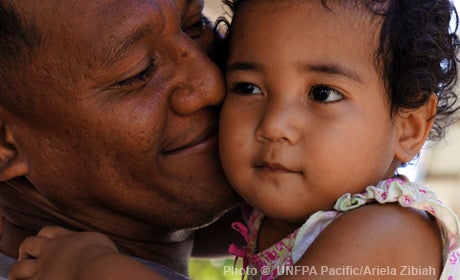Key humanitarian results 2018

People reached with Dignity Kits

Dignity Kits distributed

UNFPA’s Pacific Sub-Regional Office, located in Fiji, assists 14 countries and territories: the Cook Islands, the Federated States of Micronesia, Fiji, Kiribati, the Marshall Islands, Nauru, Niue, Palau, Samoa, Solomon Islands, Tokelau, Tonga, Tuvalu and Vanuatu. The office additionally provides technical assistance to Papua New Guinea. UNFPA works to extend family planning and emergency obstetric care, advocates for stronger protection policies, mobilizes communities against violence, and supports services for survivors. UNFPA also supports efforts to improve adolescent sexual and reproductive health.

People reached with Dignity Kits

Dignity Kits distributed
The designations employed and the presentation of material on the map do not imply the expression of any opinion whatsoever on the part of UNFPA concerning the legal status of any country, territory, city or area or its authorities, or concerning the delimitation of its frontiers or boundaries. The dotted line represents approximately the Line of Control in Jammu and Kashmir agreed upon by India and Pakistan. The final status of Jammu and Kashmir has not yet been agreed upon by the parties.
Utilizamos cookies y otros identificadores para mejorar su experiencia en línea. Al utilizar nuestro sitio web usted acepta esta práctica, consulte nuestra política de cookies.